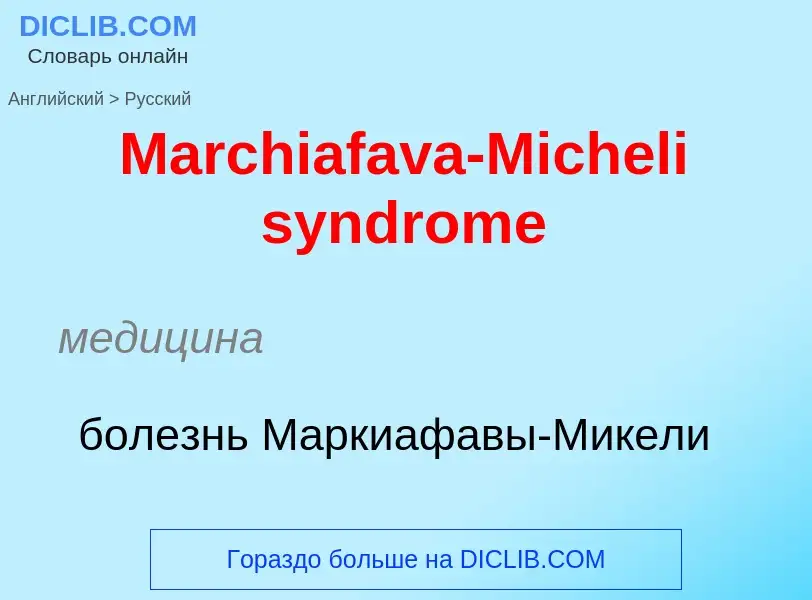Translation and analysis of words by ChatGPT artificial intelligence
On this page you can get a detailed analysis of a word or phrase, produced by the best artificial intelligence technology to date:
- how the word is used
- frequency of use
- it is used more often in oral or written speech
- word translation options
- usage examples (several phrases with translation)
- etymology
Marchiafava-Micheli syndrome - translation to russian
медицина
болезнь Маркиафавы-Микели
пароксизмальная ночная гемоглобинурия
медицина
пароксизмальная ночная гемоглобинурия
медицина
гипофизарный евнухоидизм
адипозогенитальная дистрофия
гипофизарное ожирение
Definition
Wikipedia

Paroxysmal nocturnal hemoglobinuria (PNH) is a rare, acquired, life-threatening disease of the blood characterized by destruction of red blood cells by the complement system, a part of the body's innate immune system. This destructive process occurs due to deficiency of the red blood cell surface protein DAF, which normally inhibits such immune reactions. Since the complement cascade attacks the red blood cells within the blood vessels of the circulatory system, the red blood cell destruction (hemolysis) is considered an intravascular hemolytic anemia. Other key features of the disease, such as the high incidence of venous blood clot formation, are incompletely understood.
PNH is the only hemolytic anemia caused by an acquired (rather than inherited) intrinsic defect in the cell membrane (deficiency of glycophosphatidylinositol or GPI) leading to the absence of protective exterior surface proteins that normally attach via a GPI anchor. It may develop on its own ("primary PNH") or in the context of other bone marrow disorders such as aplastic anemia ("secondary PNH"). Only a minority of affected people have the telltale red urine in the morning that originally gave the condition its name.
Allogeneic bone marrow transplantation is the only cure, but has significant rates of additional medical problems and death. The monoclonal antibody eculizumab reduces the need for blood transfusions and improves quality of life for those affected by PNH. Eculizumab dramatically alters the natural course of PNH, reducing symptoms and disease complications as well as improving survival to the extent that it may be equivalent to that of the general population. Eculizumab costs at least US$440,000 for a single year of treatment and has been reported as one of the world's most expensive drugs.





